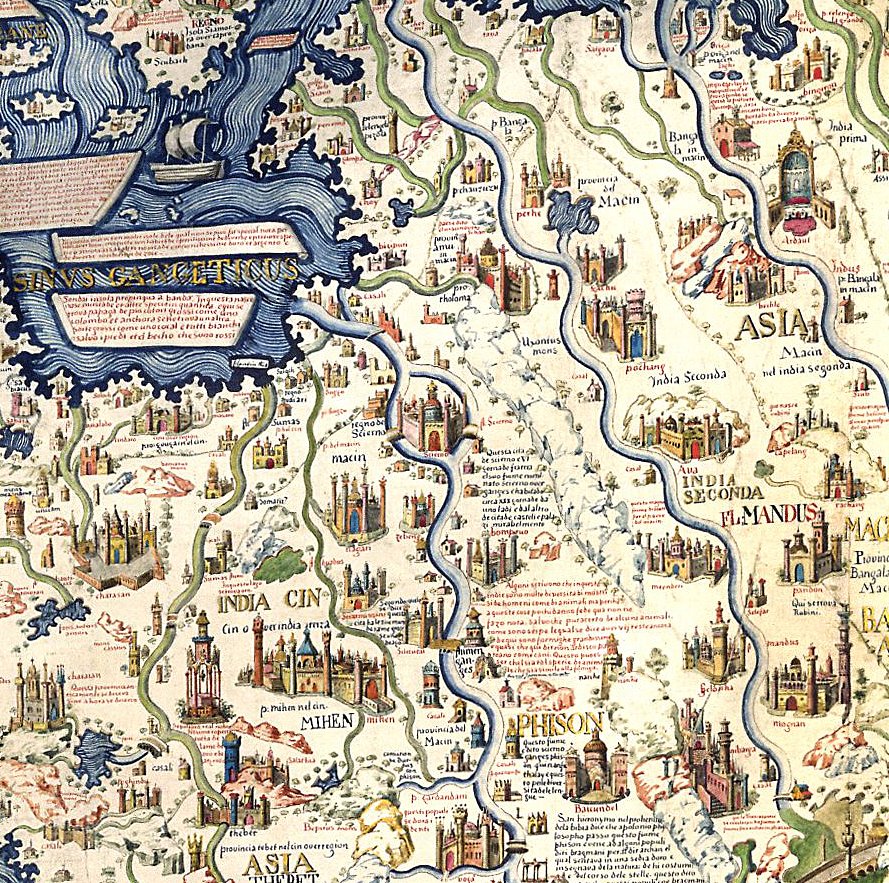|
Makassar Revolt Of 1686
The Makassar revolt ( th, กบฏมักกะสัน) was an uprising in 1686 in the Kingdom of Ayutthaya during the reign of King Narai. The revolt was led by a Prince of the Makassars who settled in Ayutthaya after the Dutch Empire had invaded his kingdom in the Celebes. The Makassar Prince, goaded by princes of Champa and supported by some Malays whose quarter neighbours his own, plotted to overthrow King Narai and seize control of the Kingdom with a puppet ruler; one of his own brothers, who would be pliant to his political and religious demands, such as conversion to Islam. However, the plot was uncovered when another Champa Prince; a palace officer and brother to the conspirators refused to participate in their upheaval and instead informed Narai's Greek minister Constantine Phaulkon, who alerts the King of the plot. Attempts of maintaining peace and order, as well as negotiations proved futile and the revolt was suppressed with a force consisting of Siamese and pr ... [...More Info...] [...Related Items...] OR: [Wikipedia] [Google] [Baidu] |
Constantine Phaulkon
Constantine Phaulkon (Greek: Κωνσταντῖνος Γεράκης, ''Konstantinos Gerakis''; γεράκι is the Greek word for "falcon"; 1647 – 5 June 1688, also known as Costantin Gerachi, ''Capitão Falcão'' in Portuguese and simply as ''Monsieur Constance'' in French) was a Greek adventurer who became the prime counsellor to King Narai of Ayutthaya and assumed the Thai noble title ''Chao Phraya'' Wichayen (เจ้าพระยาวิชาเยนทร์).Chakrabongse, C., 1960, Lords of Life, London: Alvin Redman Limited Origins Constantine Phaulkon was born to Greek parents within Assos Castle in the region of Erisso (''pertinenza di Erisso'') on northern Cephalonia (then under Venetian rule). His father's name was Zuane (Greek: Τζουγάνης that is John) and his mother's is still unknown. The Gerakis (Γεράκης) / Gerachi family was already established there, in the village of Plagia (Πλαγιά), since the 16th century. Early career At age ... [...More Info...] [...Related Items...] OR: [Wikipedia] [Google] [Baidu] |
Ayutthaya (city)
Phra Nakhon Si Ayutthaya ( th, พระนครศรีอยุธยา, ; also spelled "Ayudhya"), or locally and simply Ayutthaya, is the former capital of Phra Nakhon Si Ayutthaya province in Thailand. Located on an island at the confluence of the Chao Phraya and Pa Sak rivers, Ayutthaya is the birthplace of the founder of Bangkok, King Rama I. Etymology Ayutthaya is named after the city of Ayodhya in India, the birthplace of Rama in the ''Ramayana'' (Thai, ''Ramakien''); (from Khmer: ''preah'' ព្រះ ) is a prefix for a noun concerning a royal person; designates an important or capital city (from Sanskrit: ''nagara''); the Thai honorific ''sri'' or ''si'' is from the Indian term of veneration Shri. History Prior to Ayutthaya's traditional founding date, archaeological and written evidence has revealed that Ayutthaya may have existed as early as the late 13th century as a water-borne port town. Further evidence of this can be seen with Wat Phanan Choeng, w ... [...More Info...] [...Related Items...] OR: [Wikipedia] [Google] [Baidu] |
Champa
Champa (Cham: ꨌꩌꨛꨩ; km, ចាម្ប៉ា; vi, Chiêm Thành or ) were a collection of independent Cham polities that extended across the coast of what is contemporary central and southern Vietnam from approximately the 2nd century AD until 1832, when it was annexed by the Vietnamese Empire under its emperor Minh Mạng. The kingdom was known variously as ''Nagaracampa'' ( sa, नगरचम्पः), ''Champa'' (ꨌꩌꨛꨩ) in modern Cham, and ''Châmpa'' () in the Khmer inscriptions, ''Chiêm Thành'' in Vietnamese and ''Zhànchéng'' (Mandarin: 占城) in Chinese records. The Kingdoms of Champa and the Chams contribute profound and direct impacts to the history of Vietnam, Southeast Asia, as well as their present day. Early Champa, evolved from local seafaring Austronesian Chamic Sa Huỳnh culture off the coast of modern-day Vietnam. The emergence of Champa at the late 2nd century AD shows testimony of early Southeast Asian statecrafting and crucial ... [...More Info...] [...Related Items...] OR: [Wikipedia] [Google] [Baidu] |
Celebes
Sulawesi (), also known as Celebes (), is an island in Indonesia. One of the four Greater Sunda Islands, and the world's eleventh-largest island, it is situated east of Borneo, west of the Maluku Islands, and south of Mindanao and the Sulu Archipelago. Within Indonesia, only Sumatra, Borneo, and Papua are larger in territory, and only Java and Sumatra have larger populations. The landmass of Sulawesi includes four peninsulas: the northern Minahasa Peninsula, the East Peninsula, the South Peninsula, and the Southeast Peninsula. Three gulfs separate these peninsulas: the Gulf of Tomini between the northern Minahasa and East peninsulas, the Tolo Gulf between the East and Southeast peninsulas, and the Bone Gulf between the South and Southeast peninsulas. The Strait of Makassar runs along the western side of the island and separates the island from Borneo. Etymology The name ''Sulawesi'' possibly comes from the words ''sula'' ("island") and ''besi'' ("iron") and may refer ... [...More Info...] [...Related Items...] OR: [Wikipedia] [Google] [Baidu] |
Makassar People
The Makassar or Makassarese people are an ethnic group that inhabits the southern part of the South Peninsula, Sulawesi (formerly Celebes) in Indonesia. They live around Makassar, the capital city of the province of South Sulawesi, as well as the Konjo highlands, the coastal areas, and the Selayar and Spermonde islands. They speak Makassarese, which is closely related to Buginese and also a Malay creole called Makassar Malay. History The Makassar are an ethnic group originally from the southern coast of the island of Sulawesi. Their exploratory spirits have led to successful overseas explorations. This is exemplified by the Kingdom of Gowa (14-17th century), which succeeded in forming a vast Islamic empire with a large and strong naval force. Its territory included almost the entire island of Sulawesi, eastern Kalimantan, East Nusa Tenggara, part of West Nusa Tenggara, part of Maluku and some small surrounding islands. The Makassar people made treaties with Bali and coopera ... [...More Info...] [...Related Items...] OR: [Wikipedia] [Google] [Baidu] |




